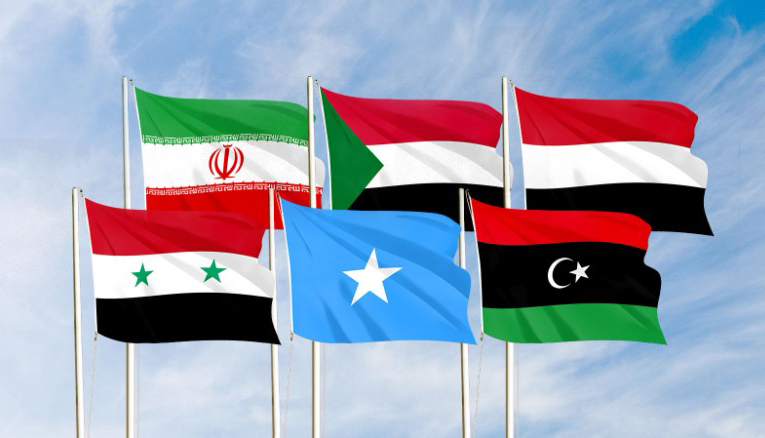

On March 6, 2017, president Trump signed a new executive order on immigration to clarify his previous chaotic one that was successfully blocked by the courts following a suit by the states of Washington and Minnesota. The president’s new executive order will take effect on March 16, 2017.
The original order had seven Muslim majority countries, Iraq, Iran, Somalia, Sudan, Yemen, Syria and Libya. The new order drops Iraq from the list.
The 90 day ban still stays as in the previous order.
According to the US State Department, all visas revoked because of the original travel ban have been fully restored.
Also, all refugees from all countries are suspended from entering for 120 days. There is no longer an indefinite ban on Syrian refugees as was the case in the previous order, they will be lumped in together in the 120 days ban on all refugees.
This new executive order applies to foreign nationals of the designated countries who:
- Are outside the United States on the effective date of the new executive order
- Did not have a valid visa at 5:00 p.m., eastern standard time on January 27, 2017 and
- Do not have a valid visa on the effective date of the new order.
The new executive ban is more clear as it attempts to avoid the chaos that greeted the previous one as people got detained at airports with no warning. According to the order, the suspension of entry will not apply to the following:
- Any lawful permanent resident of the United States
- Any foreign national who is admitted to or paroled into the United States on or after the effective date of the order
- Any foreign national who has a document other than a visa, valid on the effective date of the order or issued on any date thereafter, that permits him or her to travel to the United States and seek entry or admission, such as an advance parole document
- Any dual national of a country designated under this order when the individual is traveling on a passport issued by a non-designated country
- Any foreign national traveling on a diplomatic or diplomatic-type visa, North Atlantic Treaty Organization visa, C-2 visa for travel to the United Nations or G-1, G-2, G-3 or G-4 visa; or
- Any foreign national who has been granted asylum; any refugee who has already been admitted to the United States; or any individual who has been granted withholding of removal, advance parole or protection under the Convention Against Torture.
Most legal experts, citing the uncertainty and unpredictability of the Trump administration, are advising non-US citizens currently in the United States from traveling to the affected six countries.
About Tom Gitaa Gitaa, Editor-in-Chief
Born and raised in Kenya's coastal city of Mombasa, Tom is the Founder, Editor-in-Chief and Publisher of Mshale which has been reporting on the news and culture of African immigrants in the United States since 1995. He has a BA in Business from Metro State University and a Public Leadership Credential from Harvard’s Kennedy School of Government. He was the original host of Talking Drum, the signature current affairs show on the African Broadcasting Network (ABN-America), which was available nationwide in the United States via the Dish Network satellite service. On the show, he interviewed Nobel laureates such as 2004 Nobel Peace prize winner, Professor Wangari Maathai, the first woman from Africa to win the peace prize and heads of states. Tom has served and chaired various boards including Global Minnesota (formerly Minnesota International Center), the sixth largest World Affairs Council in the United States. He has previously served as the first Black President of the Board of Directors at Books for Africa. He also serves on the boards of New Vision Foundation and the Minnesota Multicultural Media Consortium. He has previously served two terms on the board of the United Nations Association. An avid runner, he retired from running full marathons after turning 50 and now only focuses on training for half marathons.
- Web |
- More Posts(431)



